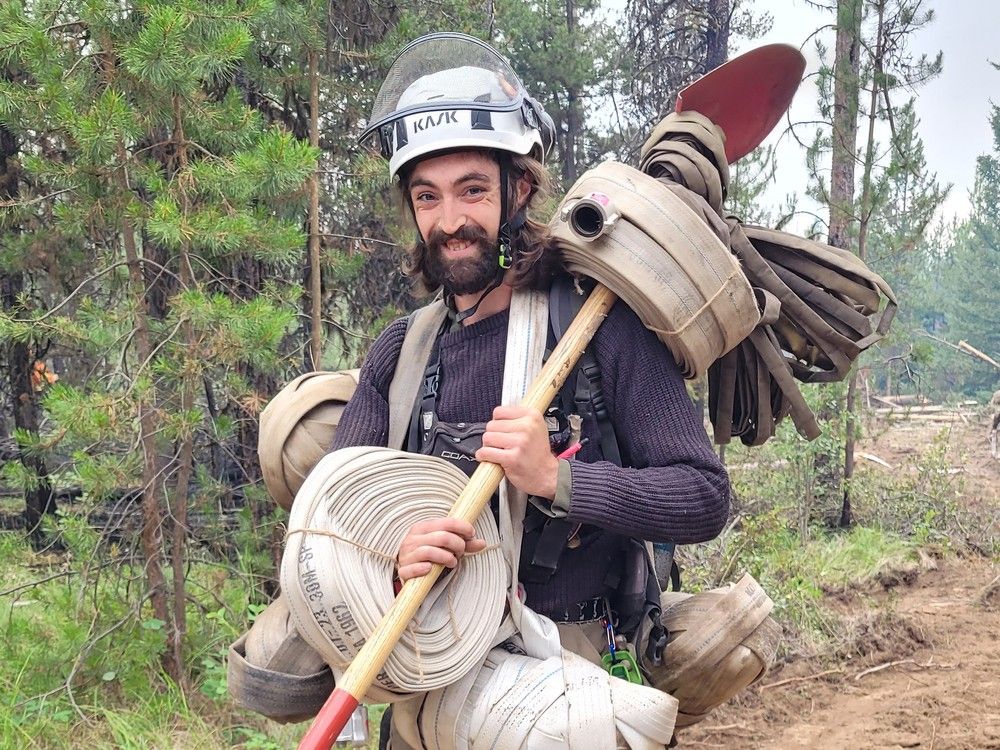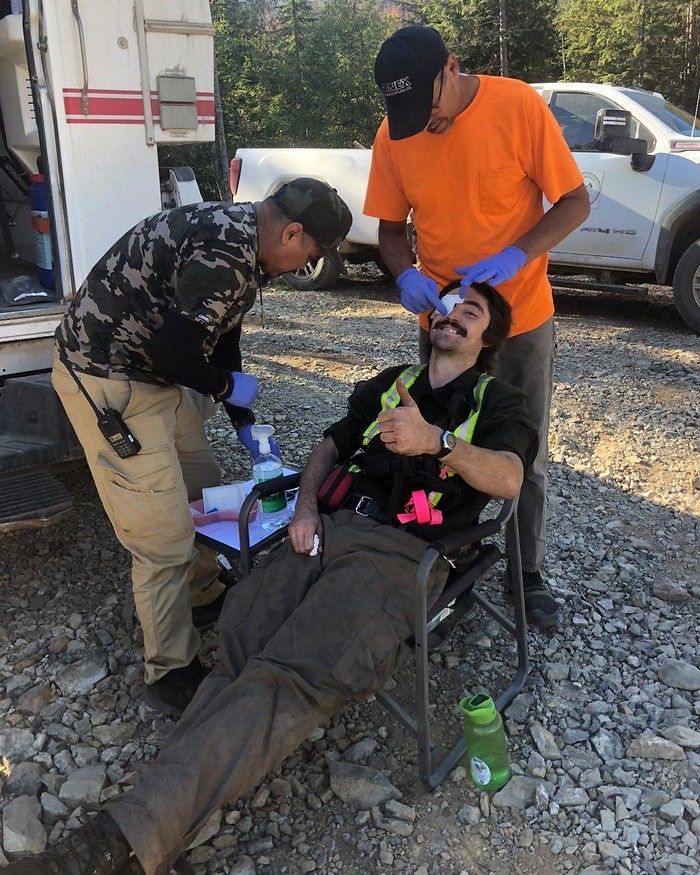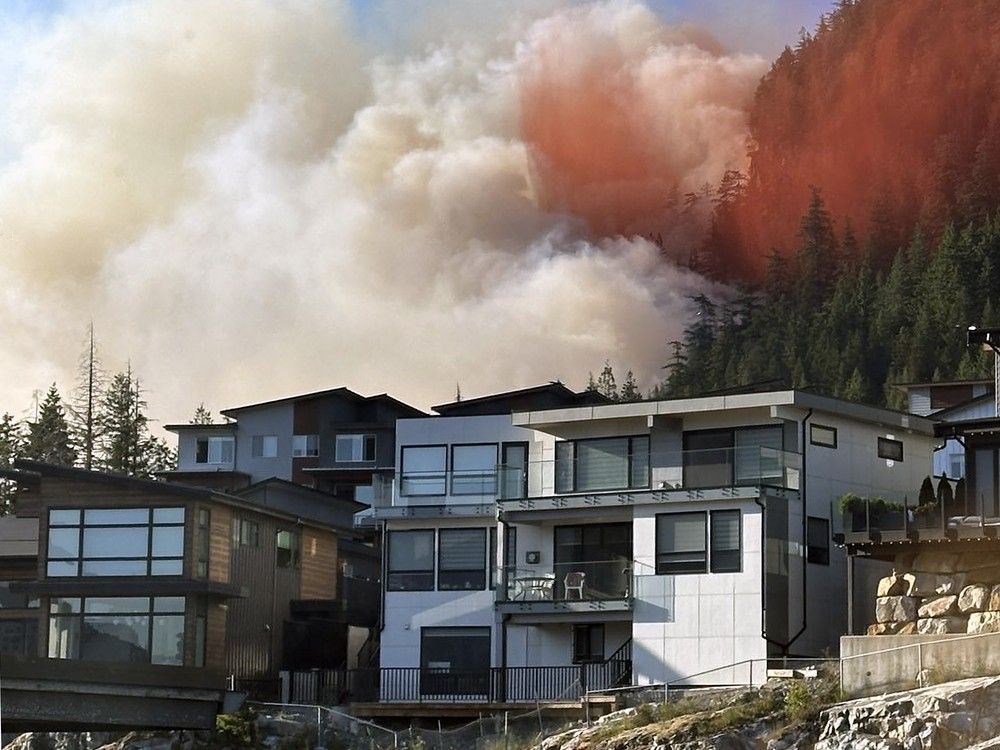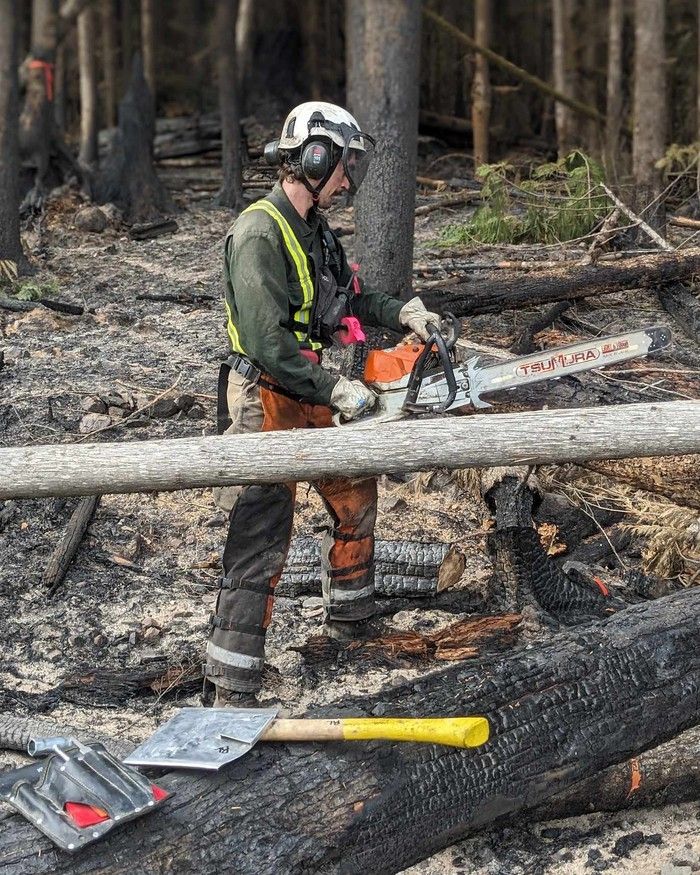
With wildfire season in full swing, an immigration consultant says there is a simple way to end the shortage of qualified people to fight wildfires: Let existing, trained firefighters who are non-residents stay once their work permits expire by letting them choose a path to permanent residency.
Jennie McCahill is representing Irish national Jake McGavin, a team leader with a wildfire-fighting contractor called Carmanah Wildfire , which is based in Sidney but has firefighting crews spread all over B.C.
“Carmanah are putting time, energy and resources into training young guys that are here on temporary permits, that have no option to stay long-term,” McCahill said. “This means (Carmanah) go around the washing machine and are constantly in new-recruit training mode when they could have continuity of a trained and experienced team, which help with prevention and active deployment.”
Carmanah owner Nick Hill was unavailable for comment.
McGavin, who turns 29 in September, is in his third season fighting wildfires in B.C. He’s been lucky to have received a pair of two-year work permits, but the second is soon to run out.
Team leader is a position that requires training and seniority, but it isn’t a position that’s considered skilled by the federal government, so McGavin has no avenue to permanent residency.
He wants to stay in Canada not only because he’s fallen in love with B.C.
“The main reason I want to stay in Canada is so that I can keep firefighting,” McGavin said. “Like Nick, I’ve invested a lot of time and energy and money into getting myself to the level of skill and experience of firefighting that I’m currently at, and I want to take it as far as I can.
“Given that Canada has welcomed me in as a newcomer, I want to give back to the country and the province as significantly as I can. Unfortunately, Immigration, Refugees and Citizenship Canada does not recognize wildland firefighting as skilled work.”

While several positions in firefighting are considered skilled — including municipal, airport, industrial and shipboard firefighters — forest firefighters are lumped into a category called silviculture and forestry .
Defining what qualifies as skilled is determined by something called the National Occupational Classification System (NOC), a statistical framework of more than 500 occupations. The system categorizes those occupations into skilled or non-skilled following a set of criteria, according to the federal Employment and Social Development Department , which administers the system with Statistics Canada.
“The government recognizes the critical role that all firefighters, including forest and wildland firefighters, play in keeping Canadians safe,” a spokeswoman for the department said in an emailed reply to questions. “Forest/wildland firefighters … are classified together with occupations associated with natural resources, including forestry workers, and with occupations that generally require a high school diploma or several weeks of on-the-job training or other types of relevant experience.”
The categories of firefighters that qualify as skilled are classified differently, together with occupations “that generally require more formal education, such as the completion of a two-to-three-year post secondary education program or the completion of an apprenticeship training of two to five years,” the spokeswoman said.

“While forest/wildland firefighters share similar duties with firefighters, there are differences, particularly in the fields of study and level of education required, as well as in employment and experience requirements.”
One example that illustrates these differences, she said, is the increasing number of medical-related calls — 48 per cent of all calls in 2023 — placed to urban fire departments in Canada, making emergency medical training key for municipal firefighters, but not to wildfire firefighters.
McCahill has filed for something called a significant-benefit work permit with Immigration, Refugees and Citizenship Canada. Known as a C10, the permit is granted to foreign nationals who demonstrate their work brings “significant social, cultural or economic benefit to Canada.”
“I am trying to find a workaround for the problem,” she said. “This is my first test case.”

Carmanah said they have guys that they have trained over the years that would love to come back.
“In a scenario where there are trained and experienced wildfire fighters within Canada, who not only already have the knowledge and familiarity with the work, but also with the company they work for and their fellow crewmates, it is not just beneficial, but absolutely imperative to use internal Canadian firefighting resources wherever and whenever possible, including the prioritization of experienced firefighters who are currently active and available within Canada,” she said.
A spokesman for Immigration, Refugees and Citizenship Canada said the federal government is committed to supporting communities and people affected by the wildfires and assisting provinces and territories with their emergency response efforts.
“Temporary foreign workers are required to follow the conditions of their work permit, which is usually linked to a specific employer and time period,” Matthew Krupovich said. “If people apply to extend or change the conditions of their work permit before it expires, they are legally allowed to stay in Canada while (Immigration, Refugees and Citizenship Canada) processes their applications.”
Foreign nationals can consult Explore immigration programs to live, work or study in Canada to determine the programs for which they may be eligible or could work toward, he said.
McGavin said he doesn’t want special treatment.
“But considering the sacrifices I have made with my limited time here, I would just like to have the same opportunity to make an application and be considered for permanent residency, the same way thousands of people in less dangerous occupations get to.”